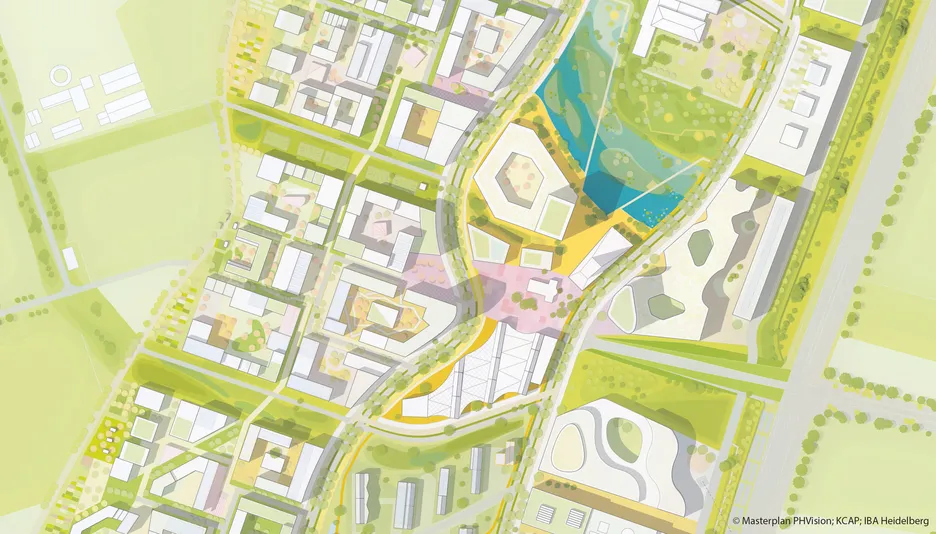urban transitions lab
FUTURE(S) OF THE SUSTAINABLE EVERYDAY-CITY IN PHV HEIDELBERG
M.A. ARCHITEKTUR | M.SC. URBANISTIK | BA ARCHITEKTUR ADVANCED | INCOMING
INTERNATIONAL URBAN DESIGN STUDIO | AR30243 | AR30277
(Letzte Aktualisierung:26.09.2022)

In this Studio YOU WILL EXPLORE possible URBAN futures of the sustainable everyday city, develop your own research question and project idea, choose a site and INVESTIGATE the potentials and details of your design project.
The studio deals with the topic of urban renewal and further development. In sustainable urban design, the question arises in which way existing spatial components - structural as well as open space - can be reconstructed, adapted, transformed and supplemented in such a way as to meet contemporary and future demands in living, working and leisure environments.
The subject of investigation is the Patrick Henry Village in Heidelberg. In the course of the International Building Exhibition (IBA) Heidelberg, the concept of a ‚Knowledge City of Tomorrow‘ was developed for the district that was built by the Americans in the 1950s. The office KCAP (Prof. Kees Christiaanse) created the dynamic master plan ‚PHVision‘ for this purpose. This master plan forms the starting point for the studio.
The Studio’s challenge is to design concrete situations and images for the PHV along various spatial-structural ‚tracks‘. What do diverse everyday networks look like in the city of the future and what spatial and structural configurations are necessary to allow this transformation?
Studio in cooperation with visiting professor ir. Kees Christiaanse (KCAP)
Contact: julian.numberger@tum.de
TEAM Prof. Mark Michaeli, Prof. Kees Christiaanse, J. Numberger, S. Klawiter, N. Kling, J. Bahret, T. Hess, M. Tran-Huu, A. Kuiitenbrouwer (KCAP), Mirjam Zueger (KCAP)
LANGUAGE English + German
STUDY LEVEL Bachelor + Master Architecture + Master Urbanistik
KICK OFF 18.10.2022 // 1:00 pm // Raum 2760
MEETINGS WED // 14:00 // Room 3250
INTERM. REVIEWS NOV 15,16 // DEC 06,07 // DEC 20 // JAN 17,18
FINAL CRIT FEB 6, 7
ECTS BA 9 ECTS // MA 15 ECTS